The 10 most dubious in-game purchases
A sigh-worthy selection of microtransactions.
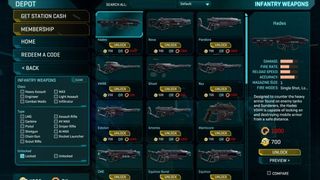
Microtransactions have gone full macro. The idea of them just being a feature in free-to-play games is a distant memory—we now see them popping up in everything from sports games to horror titles, from indie to triple-A. Spending money inside a game has become as common as spending money on the game.
Sometimes they're a gamble: you're spending money without knowing what you'll get. Other times it's just absurd, the only way to progress without hours of grinding your virtual character and your actual teeth. Often it's expensive, sometimes to the tune of hundreds of dollars.
Here's a look at the 10 most dubious ways games want you to spend your money while you're playing.
Star Citizen: Land deeds
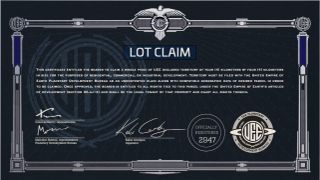
You can pay $50 to $100 for a claim to a plot of virtual land in a game that isn't out yet thanks to Star Citizen's land purchasing system that lets you secure a 4km x 4km "lot" or an 8km x 8km "estate" for your outlay. You don't need a land license to build in Star Citizen, but owning the land offers you protection against vandals, who will be committing an in-game crime for messing around with your private property. You can't choose where your plot goes yet, because Star Citizen's planned universe doesn't exist yet, but in the meantime you can look at a picture of a patch of Moon and dream.
GTA 5: The Lazer jet

Hey, you know that jet plane that you can steal from Fort Zancudo whenever you like in GTA 5? Would you like to own one for SIX POINT FIVE MILLION in-game bucks instead? For context, a Megaladon cash card worth $8 million costs $100/£65, so it's a significant purchase. GTA Online has many better, cheaper aircraft.
Call of Duty WW2: Loot Boxes
As loot boxes go Call of Duty WW2's aren't too bad. They have a cosmetic focus and you can buy them with in-game bucks. The execution is the dubious part. Developers compete to make the look and feel of opening a loot box as satisfying and impactful as possible. Few have gone as far as to drop a loot box into the middle of a realistically depicted faux Normandy Beach in a social space where everyone can see you doing it.
Battlefront 2: Loot Boxes

Battlefront 2 has become the focal point for player frustrations at loot box systems in games. Premium purchases have been turned off (and may never come back) and the system is undergoing rebalancing at the time of writing, but its initial incarnation tied progression to random drops in loot boxes. Limited crafting materials and tight drops made for frustrating progress that seemed to be trying to push players towards buying more boxes. The controversy veered into a gambling row that has drawn the attention of governing bodies around the world, but fundamentally Battlefront 2 is a clear case of a microtransaction system skewing essential progression systems, a particularly sore point given Battlefront 2's high base price.
PC Gamer Newsletter
Sign up to get the best content of the week, and great gaming deals, as picked by the editors.
Team Fortress 2: Keys

Congratulations! Among all the colorful hats, bats, and gats of Team Fortress 2, you've found a crate! What's inside it? Most likely a duplicate item worth about eight cents, while the crate itself will usually fetch less than a nickel on the market. If you want to actually unlock it, though, you'll need to buy a key.
There's nothing wrong with gambling—hey, you might actually get that rare Chargin' Targe you've always wanted—but if you're gonna pump money into a box and hope something shiny comes out, at least do it somewhere that serves you free drinks. CS:GO is similarly guilty—not only are your chances of getting an item equal or greater to your investment incredibly slim, but the value of in-game items in CS:GO and TF2 can erode considerably over time.
Train Simulator 2015: All of the Trains
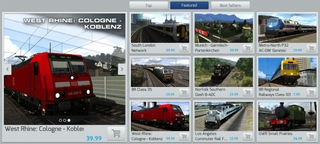
If you're good at something never do it for free. Train Simulator 2015 is good at being a train simulator, and boy are they ever not doing it for free. From its in-game store you can peruse additional trains and routes and purchase them with real cash, provided you've got enough.
Enough, in this case, would fill a caboose. Want to run a freight train through Donner Pass, charmingly named after people who tried walking through it and wound up eating each other? It'll cost you $39.99, which is the price of the base game itself. To buy every bit of additional content available you'll need to pony up around $4,400. I like trains, both simulated and real, but in this case I think I'll stick to the bus.
The Hunter: Hunting Licences
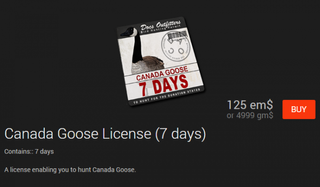
So you're walking around in free-to-play hunting simulation The Hunter, and you spot a goose. Clearly, you have no choice but to kill it: if a goose wanted to wander around safely, it should find somewhere other than nature to do it. Unfortunately, you're not goose hunting, you're boar hunting, and if you want to hunt a goose you need the proper goose-hunting weapon loaded with the correct goose-killing ammo.
You also need to buy a goose-hunting license, and hunting licenses expire after an allotted time period. It's a real-world time period, too: they even expire if you don't use them. I get that it's a simulation, and real hunting licenses expire too, but come on! How many hoops must I jump through simply to end the life of a virtual goose?
FIFA: Ultimate Team
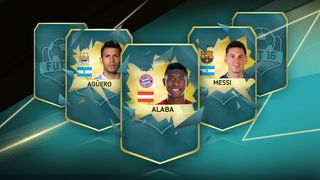
Want to land a great player for your FIFA team? Get ready to play a game of cards with a deck firmly stacked against you. You can spend cash on decks and hope you randomly snag a winner, but if you want to legitimately earn enough for a Messi or a Ronaldo then settle in, as the best players can cost millions of in-game bucks, which translates to either countless hours of play or hundreds of real dollars.
What's more, your players' contracts eventually expire, requiring new cards, either found randomly or purchased with cash, to reactivate them. It might be cheaper to buy an actual team.
War Thunder: Backup Planes

Adding planes to your roster in War Thunder is already a bit convoluted: you unlock the plane, then you buy the plane, then you hire the crew, then you train the crew to fly it, then you upgrade the various skills of each member of your crew to fly it better, then you write tender letters to each of your crew-members' sweethearts back home. All of this costs you either XP or currency. There's another way to add planes though: by purchasing a backup plane. Thing is, if your backup plane gets shot down, it's gone forever.
Does the game warn you about this? Consider their disclaimer: "You can have several backup vehicles, which are spent as far as they are used." That's not quite the bold warning text that should accompany the act of purchasing a virtual plane you can't even keep.
Dragon Age: Origins: The DLC Salesman

There's nothing more irritating than when you're in a store and a salesman is following you around, offering his suggestions on what you should purchase, especially when you're just hoping to use their bathroom. Dragon Age: Origins attempted to emulate this annoyance by introducing you to an NPC who stood around in your camp with an exclamation point over his head, trying to sell you the game's DLC in person.
It's one thing to offer DLC, quite another to create an immersion-shattering situation where a character in the game acts as the game's marketing department. Imagine reading Tolkien's The Two Towers, and Frodo kept mentioning to Sam that The Return of the King was on sale for seven bucks. Gross.
Dead Space 3: Craft With Cash
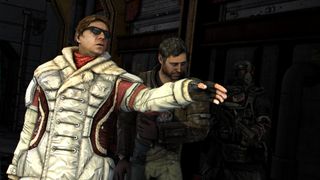
Successful survival horror is a delicate balancing act, requiring the careful arrangement of elements to ensure a player is always on the brink of disaster but allowing them just enough resources to succeed by the skin of their teeth. Dead Space 1 and 2 did a remarkable job with this.
Dead Space 3 introduced a new twist on the formula by simply removing the formula altogether, in exchange for cash. Players could simply buy the resources they needed whenever they needed them as if Isaac held the keys to an interstellar Wal-Mart. Suspense? Tension? Desperation? Now you can just pay to avoid all that. You're welcome!
Heroes & Generals: Pay To Name
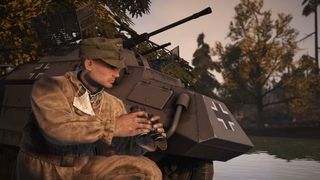
Heroes & Generals is a free-to-play WWII game following the standard formula: earn experience and in-game currency while playing, spend it on upgrades and improvements, and buy extra items and bonuses for real world cash.
It's still in early access, so presumably they're still ironing out some of the kinks. But currently, when you recruit a new soldier, he's given a randomized name. If you want to change his name, you'll have to pay for it. We all love naming tiny soldiers after our friends so we can inform them when they die horribly: it adds a little extra fun and a personal touch to the experience. Why throw up a paywall in front of that?
World of Tanks: The Paint Job

Want to dress up your tanks with some camouflage? Sure, we all do! World of Tanks offers a ton of tank camo, decals, and emblems to gussy up those war machines you've fought so hard to obtain. Of course, there's a catch.
The new paint job you've covered your tank with only lasts a week before it vanishes, which is ridiculous. Did the enemy sneak into your depot in the middle of the night to carefully scrape the camo off your Matilda IV like it's a fresh Banksy on a Manhattan storefront? If you want the detailing on your tanks to be permanent, you'll need to spend real-world money.
Part of the UK team, Tom was with PC Gamer at the very beginning of the website's launch—first as a news writer, and then as online editor until his departure in 2020. His specialties are strategy games, action RPGs, hack ‘n slash games, digital card games… basically anything that he can fit on a hard drive. His final boss form is Deckard Cain.
Most Popular





